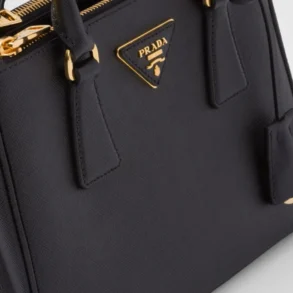
“To a bureaucrat with a hammer, everything looks like a nail”. This well-known aphorism has never been proven more true than under the Federal Trade Commission’s Lina Khan, appointed by President Joe Biden in 2021. For some reason, liberal intellectuals continue to believe in their superior economic and moral judgment, compared to what happens when we run our economic lives.
The latest goofball nonsense to come out of Khan’s FTC is so ridiculous it’s embarrassing. Apparently, competition in the market for luxury handbags is now so vitally important to American society that the FTC must intervene. It has filed an injunction to block the merger of Tapestry and Capri, an $8.5 billion deal.
While you might not have heard of Tapestry and Capri, you and/or the women in your life know their brands. Together, they own Coach, Kate Spade, Versace and Jimmy Choo, among others. According to the FTC, allowing these companies to merge would hurt competition in the “accessible luxury” handbag market. What exactly is that?
Nobody, least of all the FTC, has any idea. Apparently, they just made it up.
There are so many things wrong with this suit it’s hard to know where to start.
First, the FTC’s complaint cites concerns that consumers “might see higher prices due to reduced competition.” The key word here is “might.” Since when is it OK to use the force of law against people because of something they might do in the future? Even in those cases where imminent threats justify preventive state intervention, since when is the possibility of raising prices on a Coach handbag a harm that the federal government ought to be concerned with?
Second, the FTC and the anti-trust laws it enforces are based on an incorrect understanding of the economic process of competition. Competition is a dynamic process of economic discovery, in which perfect equilibrium is never reached.
It is a gross mistake to assume that a bunch of companies where each has a small market share is some economic ideal that state power can or should use force to achieve.
Third, companies don’t just compete on price. They compete on appearance, image, design, quality, and dozens of other factors, all in desperate attempts to find out what consumers want and are willing to pay for.
It is the willingness to pay that is key. Does anyone seriously think that Tapestry and Capri will start charging $10,000 for every handbag they make? They would if they could get away with it, but they can’t.
That’s because luxury fashion goods don’t just compete with each other. They compete with everything else consumers could purchase with their money. At the risk of stating the obvious, nobody has to buy a luxury handbag, or indeed any fashion accessory. Somehow, we’ll manage.
Let’s not forget that, thanks to America’s history of capitalism, private property, and relatively free markets, we get to live in a country where today’s luxury goods, from indoor plumbing to the internet, become tomorrow’s features of everyday life. Over time, everything gets better and cheaper, if we just take a long enough view and allow market processes, imperfect as they are, to work. That includes letting companies merge if their investors want them to.
While Americans are fortunate to live in relative prosperity, we live in challenging times. War in Ukraine. War in Israel. Threats from China. Persistent inflation. The threat of climate change. Unsustainable national debt.
Still, at least we can be grateful to the FTC, Lina Khan, and our Washington economic overlords, for saving us from the evils of the luxury handbag industry.
Barry Fagin is senior fellow in technology policy for the Independence Institute in Denver, and the author of “The Radical Center.” His views are his alone. Readers can contact Fagin at barry@faginfamily.net.
This post was originally published on this site be sure to check out more of their content.








